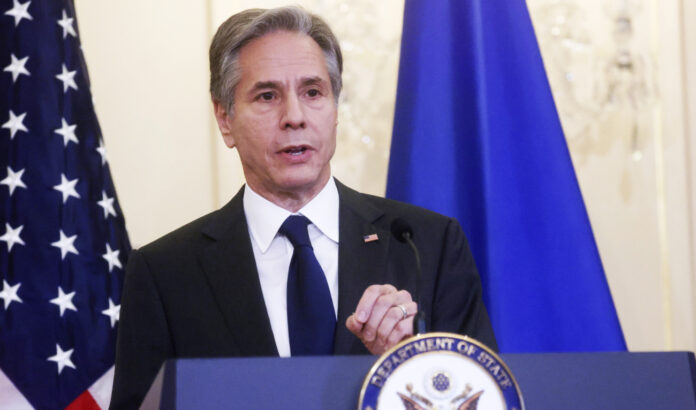NAIROBI: US Secretary of State Antony Blinken is greatly concerned about Ethiopia’s military escalation and called for urgent negotiations over the crisis, a US State Department spokesperson said.
The comments came hours after Ethiopian Prime Minister Abiy Ahmed appeared on the frontline with the national army.
“Secretary Blinken expressed grave concern about worrying signs of military escalation in Ethiopia and emphasised the need to urgently move to negotiations,” Ned Price said in a statement late on Friday.
Price released the statement after a phone call between Kenya’s President Uhuru Kenyatta and Blinken.
On Friday, Ethiopia’s state-affiliated Fana Broadcasting reported that Abiy was on the frontline with the army fighting rebellious Tigrayan forces in the northeastern Afar region. Abiy posted the same video on his Twitter account.
Abiy’s government has been fighting Tigrayan forces for more than a year, in a conflict that has killed thousands and displaced millions in Africa’s second-most populous nation.
Ethiopia has announced new restrictions on the sharing of information about the war in the north of the country which stipulate that battlefront updates can only come from the government.
“Disseminating information on military maneuvers, war front updates and results via any medium is forbidden,” except for information provided by a joint civilian-military command set up to oversee a state of emergency, the government’s communication service said late on Thursday.
The statement did not specify the implications of the new rules for journalists or media outlets covering the war, which broke out last November between the government and rebellious forces from the northern region of Tigray.
It did not, for instance, address the consequence of publishing information provided by unauthorized sources. Ethiopia’s media regulator did not return calls from Reuters seeking clarification on the matter.
The Prime Minister’s spokeswoman, Billene Seyoum, told Reuters on Friday, “The state of emergency prohibits unauthorized entities from disseminating activities from the front via various channels including media.” She did not elaborate.
Ethiopia’s parliament designated the Tigray People’s Liberation Front, the party that controls most of Tigray, a terrorist group earlier this year. In its statement, the government’s communication service instructed “those using freedom of speech as a pretext … to support the terrorist group” to refrain from doing so.
Prime Minister Abiy Ahmed oversaw sweeping reforms when he took office in 2018, including the unbanning of more than 250 media outlets, the release of dozens of journalists and the repeal of some widely criticized media laws.
However, some rights groups say press freedom has eroded since then as the government has faced outbreaks of deadly violence, including the conflict in Tigray and neighbouring regions.
At least 38 journalists and media workers have been detained since early 2020, most of them since the conflict began, according to a Reuters tally.
Asked about the arrests in May, Ethiopia’s media regulator said “freedom of expression and the protection of the press are sacred values that are enshrined in the Ethiopian constitution.”
Sign in
Welcome! Log into your account
Forgot your password? Get help
Password recovery
Recover your password
A password will be e-mailed to you.

